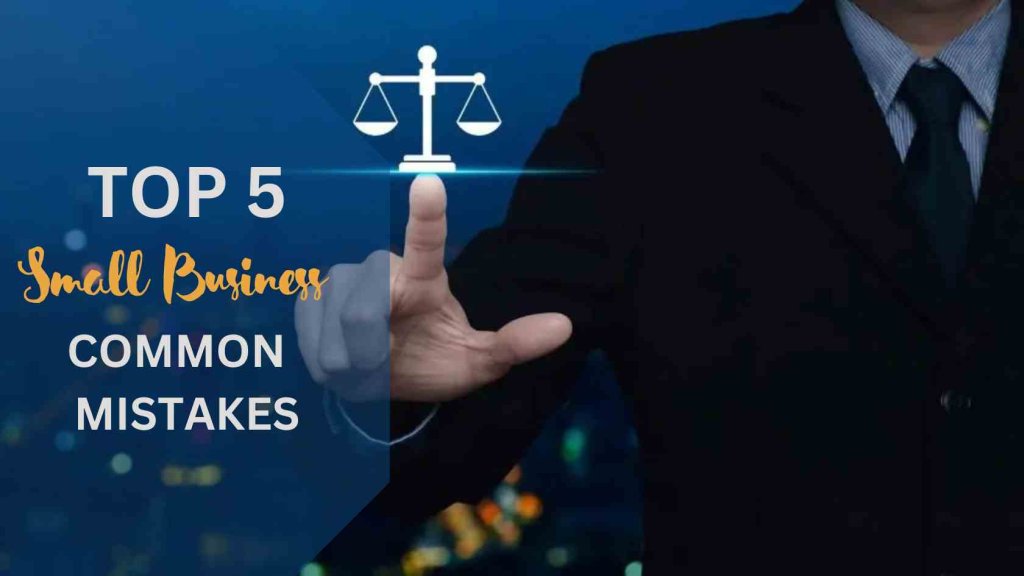VIEW BY TOPIC
- Finding Customers
- Business Systems
- Managing Employees
- Leadership
- Managing Money
Related Posts

Ready to Grow Your Business Fast?
Here’s How I Grew Five Businesses, and Eventually Sold One to a Fortune 500 Company.

Starting A Small Business? 5 Common Legal Mistakes To Avoid
Anyone doubting the importance of small businesses to the American economy has not seen statistics published by the U.S. Small Business Administration. Small businesses represent 99.9% of all firms in this country and account for 62% of net new jobs created since 1995.
It is easy for someone starting a new business to get caught up in the excitement and frenzy of finding a suitable location, raising capital and making contacts with suppliers. What you don’t want to do is lose sight of the legal pitfalls that can derail a startup.
Something as simple and easy to arrange as a consultation with a business law attorney provides a wealth of advice and guidance about the legal environment in which a business must operate and how to successfully navigate through it. A business venture that fails to comply with government regulations regarding employment, taxes and other legal matters may find itself facing substantial fines and other penalties that could destroy it.
To get you and your business started on the right path, here are five of the most common legal mistakes made when starting a small business. Yes, we even include tips to help you to avoid them.
Mistake #1: Not wanting to spend money to hire a lawyer
Waiting until after the business is operating and generating an income before hiring an attorney with experience in business law is not an effective way to save money. It generally costs less in legal fees to hire an attorney early in the formation process and avoid problems than to bring someone in to handle a lawsuit or regulatory compliance violation. Choosing a business attorney from an experienced litigious law firm will help you prevent any legal mistakes or resolve the ones you might have been involved in.
During the startup process, a business attorney can help in several ways, including:
- Recommending a type of legal structure for the business.
- Reviewing and negotiating leases and contracts.
- Conducting trademark and copyright searches to avoid infringing on the rights of another business.
- Taking steps to protect intellectual property rights of the business.
- Helping the business comply with federal, state and local government laws requiring licensing for certain types of business operations.
- Preparing employment contracts and helping the business comply with state and federal employment laws.
- Preparing partnership and operating agreements for owners of the business.
These and other services provided by an attorney help a business to avoid conflicts and disputes that could lead to lawsuits or government action against the business and/or its owners.
Mistake #2: Choosing the wrong business structure
There are several legal structures from which to choose when setting up a business. The type of business structure determines how the business pays its taxes and whether other parties, such as creditors, with claims against the business may sue its owners and seize their personal assets.

A business law attorney can help you choose the best legal structure for the operation of your business. Options include the following:
- Sole proprietorship: By far the easiest of all business structures to create, the sole proprietorship makes no distinction between an owner and the business. Business income must be reported on the owner’s personal income tax return, and the owner may be held personally liable for debts and financial obligations incurred through operation of the business.
- Partnership: Two or more people may agree to operate their business as a partnership. Each partner reports a share of the profits and losses of the business on their personal income tax return. Creditors of the business may sue the partners personally and look to their personal assets to satisfy obligations of the business.
- Corporation: State laws protect the owners of corporations from personal liability for business debts and obligations by recognizing the corporation as a legal entity that may sue and be sued in its own name. The business entity files its own income tax return and pays taxes. Shareholders, who are the owners of the business, pay taxes on dividends they receive from the corporation.
- Limited liability company: State laws allow an LLC to operate separate and apart from its ownership, which makes it similar to a corporation in protecting the assets of its owners against lawsuits or claims arising from operation of the business. An LLC files its own income tax return and pays taxes on the business income.
When choosing a business structure, keep in mind that it can be changed as the business grows. For example, you may be a one-person operation in the beginning and decide to operate as a sole proprietorship. However, the growth of your business and a desire to add other owners may cause you to change the structure to a partnership, corporation or LLC.
Mistake #3: Failing to obtain tax identification numbers
Unless you operate as a sole proprietorship, you need to apply to the Internal Revenue Service for an Employer Identification Number or EIN. The EIN identifies your business as a taxpayer with the IRS and state taxing authorities in much the same way as a Social Security number does for individuals.
Having an EIN may not mean that your business is fully compliant with state taxing authorities. Whether you have a brick-and-mortar operation or an online store, your business may be obligated to collect sales taxes on goods or services it sells and remit them to the state. If so, your business attorney may determine that you need a certificate and/or sales tax number from the state or states in which you do business.
Mistake #4: Operating without the proper licensing
You filed for and received licenses from your state to legally operate as a business, but certain types of business activities require permits from the federal government. For example, a business that sells alcohol, tobacco or firearms probably requires licenses from their state government, but they also may need licenses from the federal government. There may be additional requirements to secure before you can legally operate in a state. For example, alcohol servers must acquire a California Responsible Beverage Service certification.
Your attorney can investigate the laws that apply to the activities engaged in by your business to determine the types of licensing required to be in compliance with the law. The scope of the research done by your lawyer will include licensing requirements in all states where your business plans to operate.
Mistake #5: Allowing intellectual property to go unprotected
Intellectual property may be some of the most valuable assets that your company owns, but you could lose them unless steps are taken when starting your business to protect them. Common examples of intellectual property include:
- Business or trade name.
- Logos.
- Domain name and design.
- Proprietary software.
- Service marks.
- Inventions.
- Confidential information and commercial secrets.
- Product designs.
Filing applications to protect the intellectual property of your business through trademark, copyright, and patent protection is only one step to prevent the loss of valuable assets. Using (IP) intellectual property software can help you keep tabs on competitors and assess the value of your assets. Your attorney may recommend that you have key employees sign non-disclosure and confidentiality agreements when they are first hired to work for the business.
Conclusion
Unfortunately, these five mistakes represent only a few of the legal traps that people face when starting a small business. Getting sound professional advice from a lawyer and accountant can help you anticipate the mistakes and avoid them before they create problems.













